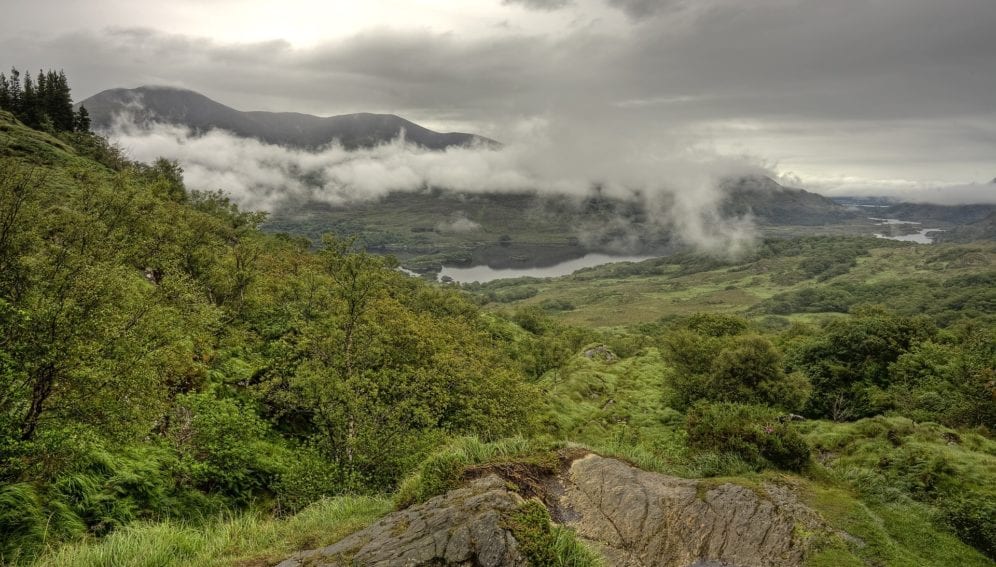By: Inga Vesper
Send to a friend
The details you provide on this page will not be used to send unsolicited email, and will not be sold to a 3rd party. See privacy policy.
Deforestation and land degradation are intensifying the climate crisis and causing widespread damage to the livelihoods of poor people around the world, a landmark report has found.
The Special Report on Climate Change and Land, released on 8 August by the Intergovernmental Panel on Climate Change (IPCC), warns that deforestation exacerbates the effects of climate change, such as water scarcity, drought and food shortages. Deforestation may briefly open up virgin land for farming, but this soon dries up and deteriorates, the report’s authors warn.
On average, the area of land suffering from drought has increased by just over 1 per cent a year since 1961, they found. This adds to the impact of global warming, the report states, with land areas having warmed twice as much as the global average surface temperature – which includes oceans – and deforested land likely to be even hotter.
Around 500 million people now live in areas experiencing desertification, the report said, and are likely to face more food supply disruption and water shortages.
“The risk of deforestation and land degradation to food security has increased… We have to urgently roll out sustainable farming practices, many of which can be profitable in three to five years”
Valérie Masson-Delmotte, research director, French Alternative Energies and Atomic Energy Commission
Valérie Masson-Delmotte, research director at the French Alternative Energies and Atomic Energy Commission, and co-author of the report, told a press conference in Geneva: “The risk of deforestation and land degradation to food security has increased based on new knowledge presented in the report. We have to urgently roll out sustainable farming practices, many of which can be profitable in three to five years.”
Women, elderly people and the poorest will be particularly vulnerable, the IPCC warned, as they are the most likely to rely on smallholder farms and have fewer means to adapt farming practices.
Marta Rivera-Ferre, one of the report’s lead authors and a food systems researcher at the University of Vic – Central University of Catalonia in Spain, told SciDev.Net: “Women, even though in developing countries they have a big role in farming, have less access to land and less decision-making power. At the same time, women hold important knowledge about how to produce food in very adverse conditions. We need to create institutional and governance conditions to allow them to practise their capacity for making the system work.”
Such pressures on the food system come at a time when the global population is rising, with more and more people able to afford a meat-rich, Western-style diet. This drives deforestation to make space for crops grown to feed animals, as well as soil-depleting crops such as palm oil, sugar cane and maize grown for syrup, says Rivera-Ferre.

“Western diets are one of the driving forces of deforestation in other parts of the world,” she added.
Demand for such products also increases trade and related food waste because of bad storage and handling. Around 25 to 30 per cent of food produced around the world is lost or wasted, the report said. It suggested “factoring environmental costs into food”, and highlighted the importance of indigenous knowledge and methods in making land use more sustainable.
Alisher Mirzabaev, also a lead author and economist at the Center for Development Research at the University of Bonn in Germany, told SciDev.Net: “In developing countries, food losses occur at the farming and production level, whereas in rich countries they happen at the consumption level. Measures like better post-harvest storage, reduced tillage and indigenous irrigation methods could help a lot.”
Emissions caused by agriculture, forestry and other land use resulted in 12 million metric tonnes of annual carbon dioxide emissions — around 23 per cent of all manmade CO2 emissions in 2007 — 2016, the report found. However, it noted that land can also act as a carbon sink, leaving net emissions of around 5 million tonnes of CO2 a year.
Soil sequesters carbon if it is allowed to build up without tillage, and tree cover stores carbon as long as it is maintained. The report strongly recommends afforestation, stating that up to 5.8 million tonnes of CO2 emissions could be saved annually through reducing deforestation and planting more trees.Reyes Tirado, a scientist at the Greenpeace Research Laboratory in Exeter, United Kingdom, told SciDev.Net: “We can free up vital land space being used for animal feed and grazing through healthier plant-rich diets and ecological farming practices that will help sequester carbon in the soil and increase biodiversity.
“Land degradation can be avoided, and degraded farms put back into producing food, by ecological farming practices that focus on taking care of the soil. But farmers need support in learning and applying these practices that build resilience.”














